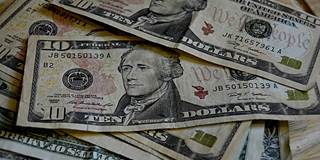Will Dollar Strength Trigger Intervention in 2017?
While it is quite plausible to expect that Dona'd Trump’s incoming US administration will want to reverse the dollar’s climb, it is equally plausible that no other major economy will help. If the strong dollar prompts intervention in currency markets in 2017, the most likely scenario is one in which the US intervenes alone.
CAMBRIDGE – Only a small group of central banks refrain from intervening in the foreign-exchange market to stabilize their currencies’ exchange rate or coax it in the desired direction. Even when they do not intervene directly, their interest-rate policies are often formulated to be compatible with exchange-rate objectives. As a result, freely floating currencies are comparatively rare. This has important implications for the United States authorities as they confront a sharp rise in the dollar’s exchange rate.



CAMBRIDGE – Only a small group of central banks refrain from intervening in the foreign-exchange market to stabilize their currencies’ exchange rate or coax it in the desired direction. Even when they do not intervene directly, their interest-rate policies are often formulated to be compatible with exchange-rate objectives. As a result, freely floating currencies are comparatively rare. This has important implications for the United States authorities as they confront a sharp rise in the dollar’s exchange rate.